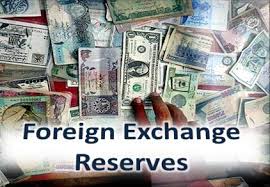In the article ‘tragedy of the commons’ I have explained the importance of property rights and optimal utilization of resources. (In case you missed it check it here). The essence of the article was that property rights must be well defined. Failure to define the property rights might lead to externalities and economic inefficiencies. Now, if the property rights are well defined then does the distribution of property rights affect the economic outcome?
This answer was given by Ronald Coase by his famous theorem known as ‘the coase theorem.’ The theorem states that the optimal amount of the good involved in the externality is independent of the distribution of the property rights. It means that it doesn’t matter who has the property rights, the outcome will be efficient in all the cases. This arises because the parties will bargain with each other and it will lead to a Pareto optimal allocation. Let’s understand it by an example.
Suppose there are two roommates A and B. A likes to listen loud music but B doesn’t and hence externality arises. In the first case let person A has been allotted property rights to listen to loud music. In such a situation person B will suffer. In the absence of trade, the outcome is not efficient as both A and B could be made better off by trade. Therefore, Person A would like to sell some of his property rights to B and can receive money or any desirable good in return. This trade will result in a Pareto efficient allocation. Now think from the opposite end, suppose B has the legal right to noise free environment. In this case B can trade his property rights in order to get valuable things in return. Again the outcome will be optimal. Hence, as long as transaction costs are low, parties can bargain and trade their rights to achieve a mutually beneficial outcome, which is regardless of whom the property rights were allotted. There can be difference in the payments made in each case, but the efficient level of the good will remain the same.
This theorem is useful in many government decisions regarding property rights and externalities. One real life example is – Caithness Energy, a company in Oregon, offered $5000 to the households residing near the turbines of the company so that, they do not complaint about the loud noise the turbines create.
The coase theorem is an important contribution to the modern economics and is highly used in resolving legal issues relating to externalities. Because of his great work, in 1991, Ronald Coase was awarded with a Nobel Memorial Prize in Economic Sciences.





17 Comments. Leave new
Good article
Thanks
Interesting.
Thanks
Informative 😀
Thanks 🙂
Well articulated.
thanks
nice work..
Well presented.
nice work!!
good work 🙂
Nicely explained..!
Great effort!
Thank you everyone 🙂
Good efforts 🙂
Good work